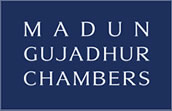Cruz City – Enforcement of Arbitral Award
Moorari Gujadhur acted as counsel to Cruz City 1 Mauritius Holdings, a Mauritius-incorporated company holding a category 1 global business licence which had heavily invested in the Indian real estate market ,in connection with what is the first application to the Supreme Court of Mauritius for enforcement of international awards under the New York Convention on the Recognition and Enforcement of Foreign Arbitral Awards (the “New York Convention”) since the enactment of the International Arbitration Act 2008 of Mauritius. Faced with an application to enforce two LCIA awards in favour of Cruz City, the Supreme Court of Mauritius dismissed constitutional challenges to the law implementing the New York Convention in Mauritius. “There was nothing unconstitutional about an agreement to submit a dispute of fact or law to a private decision-maker to the exclusion of the courts,” the Court said.
The Court also had to consider the meaning of “public policy” under Article V(2) of the New York Convention, which provides grounds for refusing enforcement of an award. The parties opposing enforcement had argued that the award breached the public policy of India, where the slum regeneration project at the centre of the dispute was located. The meaning of “public policy” has caused difficulty in a number of jurisdictions. In this case, the Court held that, when considering Article V(2) of the New York Convention, the relevant public policy to examine was that of Mauritius, not of India. Furthermore, the Court said: “it is the public policy in the international context that will matter and not the public policy that would normally apply when challenging a domestic award”. The Court added that a party opposing enforcement of an award has to show “with precision and clarity in what way and to what extent enforcement of the award would have an adverse bearing on a particular international public policy of this country”.
This judgment has been greeted as evidence of pro-arbitration judicial attitudes in Mauritius, as the country seeks to position itself as the leading arbitral seat in Africa. According to Duncan Bagshaw, the Registrar of the LCIA-MIAC Arbitration Centre in Mauritius, “the robust and sophisticated judgment demonstrates the benefits of having a small, designated panel of judges in Mauritius that hear all the international arbitration cases and clearly drafted state-of-the-art international arbitration legislation”.
White & Case acted as English counsel to Cruz City on this matter.



